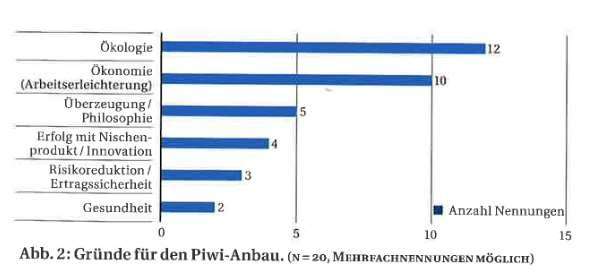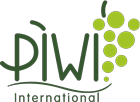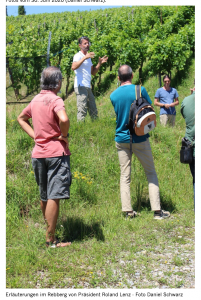PIWI Portugal
PIWI International has kindly invited me to represent them in Portugal to help inform wine growers and winemakers here about PIWI grape varieties, with the aim to increase confidence leading to planting and producing portuguese wines made from these vines.
In addition Portugal has one of the largest numbers of native varieties and research into breeding PIWI vines using these Autoctone varieties as part of a successful PIWI variety would be very important not only for Portugal.
I am an engineer by training having worked in heavy industry, but moving to film and television in the 70s as a sound engineer and later developing products for this industry in my company in Munich.
I and my wife Helga moved to Portugal and started an organic winery in 2001 called Vinhos Cortém. We were certified organic in 2010 and with 4.5 Ha. of vines and 16 different international and portuguese grape varieties, made organic wine until 2019 when we sold the winery. But we are continuing making wine on a small scale with about 2 Ha. In this way, we can continue our passion making wine in our terroir and remain in the wine community here. We welcome all Piwistas to visit us if they are in Portugal!
See details on www.wineeccentrics.com
ChristopherPrice
Rua João Alves 37-39
Cortem
2500-741 VIDAIS
Telemove: +351 912288586
E-mail: c.price@gmx.de
Internet: www.wineeccentrics.com
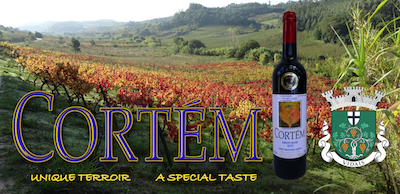
Latest News
Is the market ready?
NEW GRAPE VARIETIES
The marketing of PIWI wine is characterized by various challenges.
Text: Christoph Kiefer, M.Sc. and Prof. Dr. Gergely Szolnoki, Hochschule Geisenheim University
Mushroom-resistant (PIWI) grape varieties are the next logical step towards sustainable cultivation within organic viticulture. Although PIWI grape varieties achieve economic and ecological advantages for winegrowers, fewer than three percent of German vineyards are planted with them. Other wine-growing countries such as France and Italy are registering increasing breeding successes, but the proportion of PIWIs in these countries is also at a low level. This mainly results from the lack of market acceptance by the consumer. Customer acceptance of these innovative grape varieties remains low despite the increased demand for sustainable food.
Within the VitiFIT, the team from Geisenheim examines the complete value chain of PIWI wines in order to better understand the attitudes and needs of producers, marketers and consumers. Based on this, a communication strategy is to be developed at the end of the project in order to establish PIWIs on the market in the long term.
This article analyzes the current market acceptance.
Source: Deutscher Weinbau 25-26 / 2020
Pesticide cocktails in Swiss wine
Half of the 15 Swiss wines in the “Kassensturz” test contain five or more pesticides.
Author: Adrian Zehnder
The sample includes popular Swiss wines from the retail trade: five whites, one rosé and, above all, red wines from the major Swiss growing areas, made with the typical grape varieties Pinot Noir (Blauburgunder) or Merlot. Chasselas dominates the white wine. These varieties are considered pesticide intensive. The wines cost between 7.50 and 22 francs.
Source: Kassensturz
Fungus-resistant grape varieties - the new PIWI book
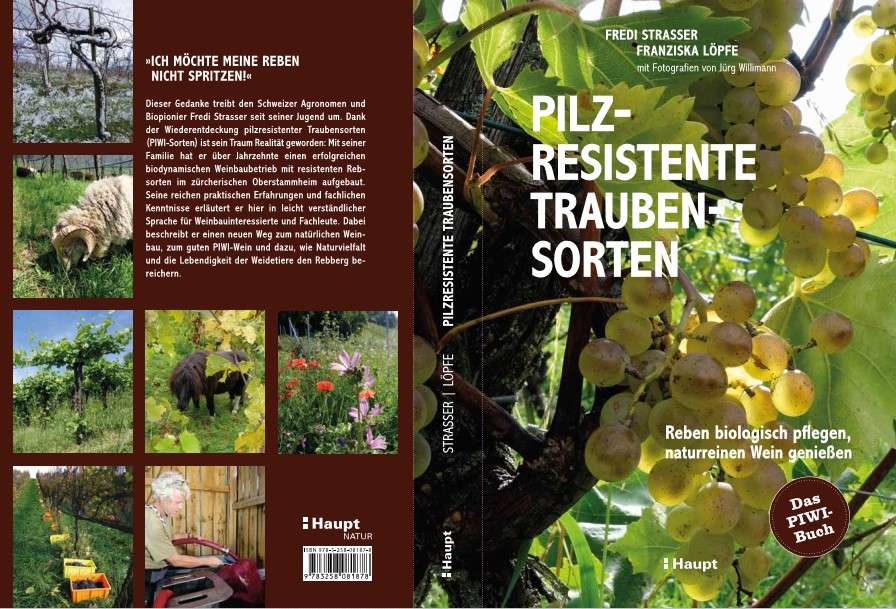
- Big on the rise: ecological viticulture with fungus-resistant grape varieties (PIWI varieties).
- The book by PIWI pioneers Fredi Strasser and Franziska Löpfke, Willimann Jürg (photographer)
ISBN: 978-3-258-08187-8
(more…)
Biodiversity hike and 1st general meeting PIWI CH
On Tuesday, June 30, 2020, almost 60 people met at the Roland organic wine estate and Karin Lenz on the Iselisberg in Uesslingen. The PIWI CH association, founded in December 19, invited to the first general meeting.
In beautiful summer weather, those present set off on a hike through the vineyards of Uesslingen in the lower Thur Valley (TG). Various stops were made on the way. The enthusiastic organic and PIWI winemaker Roland Lenz (two-time organic winemaker in Switzerland) drew attention to the different vineyards and types of viticulture. In an organic farm, a lot of flowers and herbs, sometimes shrubs, grow between the rows to offer beneficial species a home. FIBL's Bea Steinemann reports on the latest attempts to optimize the seed mix between the rows of vines. The hikers also become aware of the differences between European vines and the newly cultivated PIWI varieties (PIWI stands for fungus-resistant and means “robust in cultivation”, ie little to no spraying against pests and diseases has to be carried out). Of particular interest were the references to missing rows of vines in favor of shrubs, the distance to the next trees or the additional insect hotels, all to promote biodiversity.
Back at the Lenz winery, the hikers were happy about the water break before the actual general meeting began. The PIWI CH association was founded last December as a regional section of the PIWI International umbrella organization. The association's goal is to promote PIWI grape varieties in breeding, cultivation, marketing and enjoyment. The association's activities such as participation in the Agrovina or a planned wine and dine in the well-known Hiltl restaurant in Zurich serve exclusively with PIWI wines with certain new taste experiences. The association also publishes the "PIWI WEIN ZEIT" brochure. The readers are connoisseurs and interested individuals, restaurateurs, traders, winegrowers, breeders and journalists. The first edition of March this year was one of the highlights in President Roland Lenz's activity report for the first half of the year. The meeting was characterized by many votes from the members who participate with commitment in the association.
After the official part, the attendees were able to taste and discuss over 40 different pure PIWI wines. These include various new varieties that only have breeding names, such as VB CAL 1-28 or VB CAL 32-7.
Media contact:
President Roland Lenz
Organic winery Roland and Karin Lenz, Iselisberg, Uesslingen
info@weingut-lenz.ch / +41 52 746 13 86
actuary
Daniel Schwarz
info@piwi-ch.ch
Homepage: https://piwi-international.org/piwi-regional/schweiz/
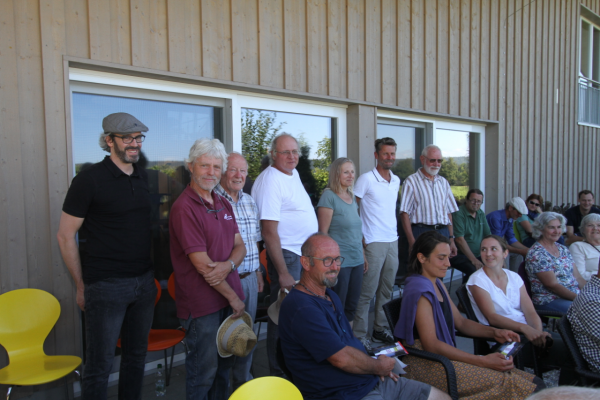
General Meeting June 30, 2020 - Program
The first general meeting of PIWI CH will take place on June 30, 2020 at the organic wine estate Roland and Karin Lenz in Uesslingen (TG).
Are planned:
13.30: Biodiversity and new varieties (public event)
4:00 pm: Start of the general assembly
Finally: snack and wine tasting on the subject of new varieties
The agenda of the meeting is:
- Greeting
- Choice of 1 vote counter
- Activity report of the President
- Annual program and activities
- Budget 2020: Membership fee budget 2020
- Elections: Board of Directors, Auditors, President
- Miscellaneous and discussion
Registration requested at:
Organic winery Roland and Karin Lenz
info@weingut-lenz.ch
0041 52 746 13 86
First edition of PIWI Wein Zeit
Our first newspaper is ready!
Have fun while reading!
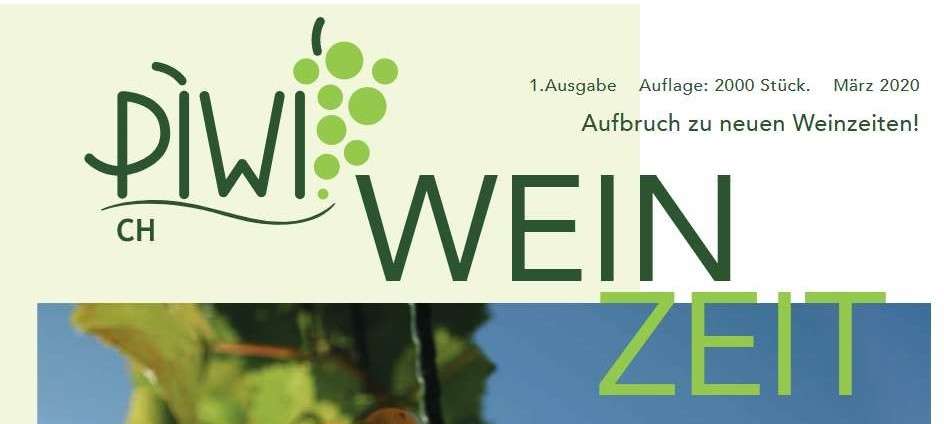
PIWIs in Swiss viticulture
Mushroom-resistant grape varieties (piwis) are particularly suitable for sustainable viniculture from both an ecological and an economic point of view. Compared to European vines, crop protection treatments can be saved and environmental pollution reduced. The industry's interest in Piwi wines, especially in the organic sector, is increasing - even if the traditional wine sector is changing only slowly.
Lena Holzwarth, University of Agricultural. Forest and Food Sciences (HAFL), Zollikofen, and Andreas Häseli, Research Institute for Organic Agriculture (FiBL) Frick
Article published in the Swiss magazine for fruit and wine growing 4/2018
